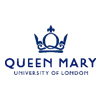Overview
London
68 Million
English
485,645
$ 3.42 Trillion
+44
Pound Sterling
359
Why study in UK
The United Kingdom (UK) is a popular destination for international students who are looking for a high-quality education and a unique cultural experience. The UK is home to some of the world's most prestigious universities, including Oxford, Cambridge, and Imperial College London. In addition, the UK offers a wide range of academic programs, from undergraduate to postgraduate degrees, that are recognized and respected globally. Some popular courses for international students include:
Business and management: courses in business administration, finance, accounting, and marketing are highly popular among international students.
Engineering: he UK is home to many top engineering programs, including in fields such as mechanical engineering, electrical engineering, and computer science.
Law: The UK is known for its legal system and offers some of the best law programs in the world.
Medicine: the UK has a long-standing tradition of medical education and research, making it a popular destination for students interested in medicine and healthcare-related fields.
Natural Sciences: the UK offers a variety of natural sciences programs such as biology, chemistry, physics, and environmental sciences.
Humanities and Social Sciences: the UK offers a diverse range of programs in fields such as history, political science, economics, sociology, and psychology.
Art and Design: UK has a rich tradition in art and design fields, and offers a variety of programs in fields such as fashion, graphic design, and architecture.
Types of Courses
£10,000 to £20,000
£10,000 to £20,000
£15,000 to £30,000
Admissions Requirements
While applying to a UK university, here are the major requirements you must meet in order to study there.Top Universities
Scholarships
UK scholarships are financial awards that are given to international students who are looking to study in the United Kingdom. These scholarships are designed to help students cover the cost of tuition fees, living expenses, and other costs associated with studying in the UK. Scholarships are typically awarded based on academic merit, financial need, or a combination of both.
Accomodation
Accommodation for international students in the United Kingdom can vary depending on the location and type of housing. The most common types of accommodation for international students include:
University-owned accommodation
This type of accommodation is typically provided by the university and is usually located on or near campus. Prices for university-owned accommodation can range from around £80 to £250 per week, depending on the location and type of room.
Private accommodation
This type of accommodation is typically rented from private landlords and can include options such as shared apartments or houses. Prices for private accommodation can vary greatly depending on the location and type of housing, but on average, it can cost around £80 to £150 per week for a single room.
Homestay accommodation
This type of accommodation involves living with a local host family. This option is particularly suitable for students who are looking for a more immersive cultural experience and it usually includes meals. Prices for homestay accommodation can range from around £90 to £180 per week.
Student Halls of Residence
This type of accommodation is designed for students and is usually located on or near campus, with the prices from £100 - £200 per week.
It is important to note that these prices are approximate and can vary depending on the location and type of housing. Additionally, many universities help with finding accommodation and can provide information on the different options available.
Living Cost
Living cost in the United Kingdom (UK) can vary depending on the location and lifestyle of the individual. However, on average, students can expect to spend around £1,000 to £1,500 per month on living expenses. This includes costs such as accommodation, food, transportation, and entertainment.
£50/month
£20/month
£40/month
£20/month
£40/month
£90/month
Visa
The visa procedure for a student visa in the United Kingdom (UK) involves a few steps that must be completed before arrival in the country. International students will need to apply for a Tier 4 (General) student visa, which is the main UK student visa category.
Visa Procedure
Careers + Work Opportunities
International students in the United Kingdom (UK) have various career and work opportunities available to them. These opportunities can vary depending on the student's field of study, qualifications, and work experience.
One option for international students is to work part-time while studying. Many universities and colleges offer on-campus jobs such as research assistants, tutors, or administrative roles which are suitable for students. Additionally, students are allowed to work up to 20 hours per week during term-time and full-time during vacation period.
Another option is to look for internships or work placements. Many UK universities and colleges have strong links with industry and can help students find internships and work placements that are related to their field of study. This can provide students with valuable work experience and help them to build a network of contacts in their chosen field.
After graduation, international students have the opportunity to apply for a Tier 1 Graduate Entrepreneur visa, which is designed for students with a business idea to stay in the UK for a year to develop it.
Additionally, many international students find work in their field of study after graduation. The UK has a diverse and dynamic economy with plenty of job opportunities. International students can also apply for a Tier 2 (General) work visa, which allows them to work in the UK for a period of up to five years.
Part-time Work Opportunities
Maximum of 20 hours per week for regular students
Full-time Work Opportunities
Graduates of Bachelors or Masters programs are entitled to a 2-year post study work visa (PSW). The post study work visa for PhD graduates is valid for three years.
FAQs
The length of time you can study abroad in the UK varies depending on the program or institution you choose. Some Master’s programs may be 1 or 2 years, while bachelor’s degree are 3 to 4 years.
The application process for studying abroad in the UK will vary depending on the institution or program you are applying to. Generally, you will need to submit an application, transcripts, test scores, and other required materials. Some institutions may also require an interview or test of English proficiency.
Studying abroad in the UK can provide you with a valuable cultural experience and help you develop independence, adaptability, and intercultural competence. It can also help you improve your English language skills, and increase your chances of finding a job or pursuing graduate studies.
International students are allowed to work in the UK, however, 20 hours a week is the number of hours you can work while studying. But during post study work visa (PSW), you can work full time.
The UK is home to many historic and cultural attractions such as London, Edinburgh, Stonehenge, The Lake District, and more. You can also explore the countryside, attend festivals and events, and try traditional British food.





